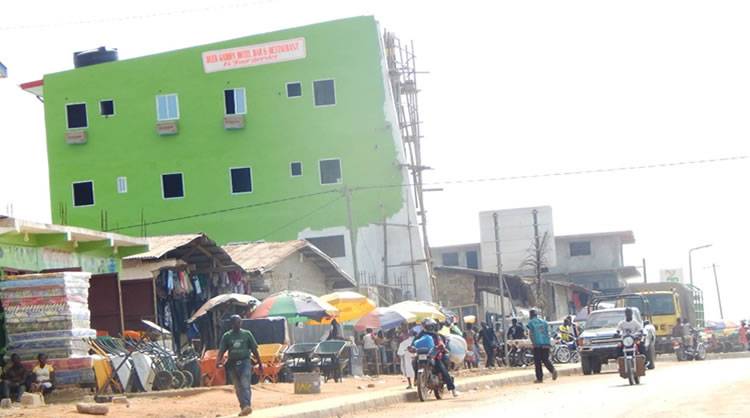In Nimba County, Liberia, a wave of speculation surrounds the success of several prominent business owners. Locals attribute their rapid prosperity to “juju,” a term encompassing supernatural practices and rituals, including human sacrifice and the acquisition of “blood money.” These accusations have prompted a defensive response from those targeted, who vehemently deny any involvement in such activities. Business leaders like Pharaze Depah, former Unity Party county chairman and owner of the newly dedicated Dekpah commercial complex, and Tomah S. Floyd, Sr., CEO of Jungle Water Group of Investments, insist their achievements are the result of meticulous planning, strategic execution, and unwavering perseverance, rather than any occult practices.
The whispers of juju, though never directly addressed to the accused business owners, have become a persistent undercurrent in the local narrative. The NEW DAWN, a local news outlet, reports that these tycoons are proactively distancing themselves from the allegations, perhaps in an attempt to preempt further scrutiny and maintain their public image. The controversy highlights a clash between traditional beliefs and modern entrepreneurial success, fueling suspicion and distrust within the business community. While some celebrate the economic growth spurred by these ventures, others view it with apprehension, colored by deeply-rooted cultural anxieties surrounding rapid wealth accumulation.
While the successful business owners publicly dismiss the juju allegations, a segment of the Nimba business community remains skeptical. These individuals, who claim to have been in business for decades without experiencing comparable success, express a sense of bewilderment and frustration. They point to their own long-standing efforts, juxtaposing them against the relatively quick rise of the accused, insinuating that conventional business practices alone cannot account for such disparities. Their skepticism speaks to a pre-existing tension, where traditional beliefs about wealth creation intersect with the realities of a rapidly changing economic landscape.
The dedication of the Dekpah commercial complex in Ganta, a project boasting 250 stores and promising numerous job opportunities, became a focal point for this ongoing debate. The complex, owned by Pharaze Depah, stands as a symbol of his entrepreneurial success, yet its very existence seems to amplify the rumors surrounding its origins. The scale and speed of such developments have fueled suspicion among locals, leading many to question the source of the capital and the driving forces behind such ventures. The complex, intended as a testament to Depah’s business acumen, inadvertently becomes a lightning rod for accusations, further embedding the narrative of juju within the community discourse.
The allegations of juju in Nimba County underscore a deeper societal tension between traditional beliefs and modern capitalist pursuits. The rapid economic advancements, particularly in Ganta, are perceived by some as disrupting the established order, creating an environment ripe for suspicion and speculation. The belief in juju provides a framework for understanding seemingly inexplicable successes, offering an alternative explanation to conventional narratives of hard work and strategic planning. This clash of perspectives highlights the challenges of integrating modern economic principles within a society still deeply rooted in traditional belief systems.
The ongoing debate in Nimba County reflects a broader struggle within many developing economies, where rapid economic growth often outpaces the development of transparent business practices and regulatory frameworks. This creates a vacuum filled by speculation and suspicion, where success is often attributed to factors beyond the visible realm of conventional business dealings. The allegations of juju, while seemingly outlandish to some, offer a glimpse into the complexities of navigating economic transformation within a society grappling with evolving cultural norms and traditional beliefs. Ultimately, the controversy underscores the need for greater transparency and open dialogue within the business community to address these underlying anxieties and foster trust within a rapidly changing economic landscape.


